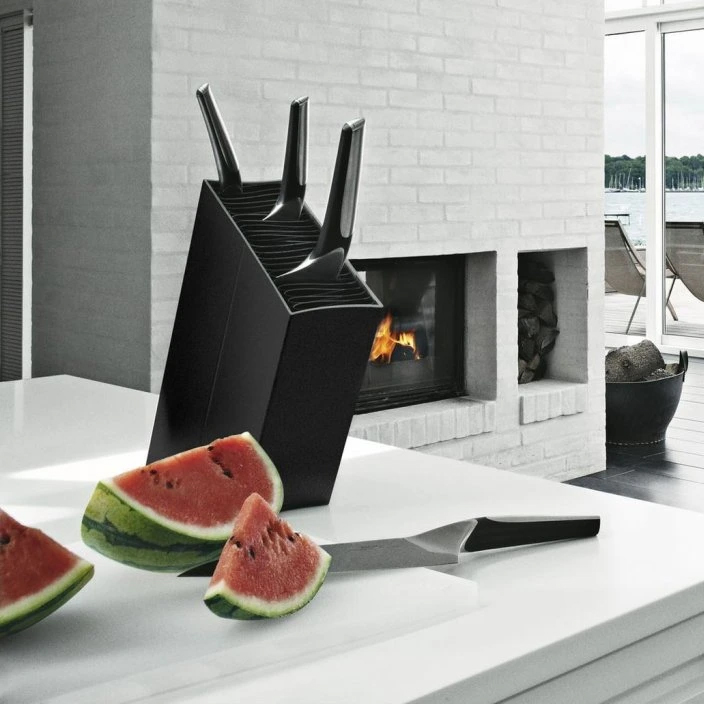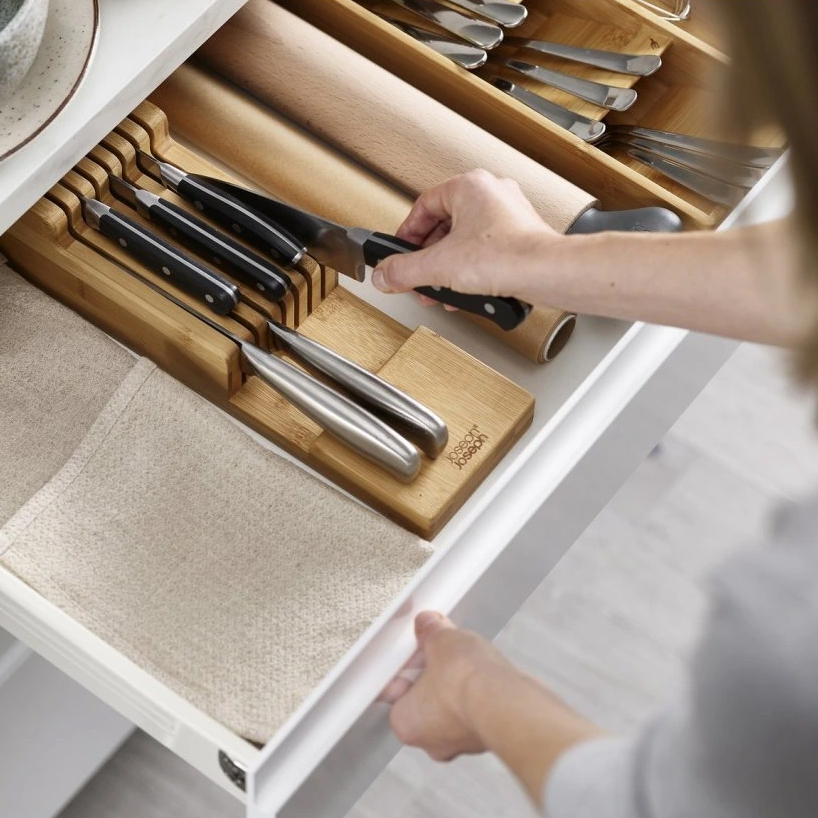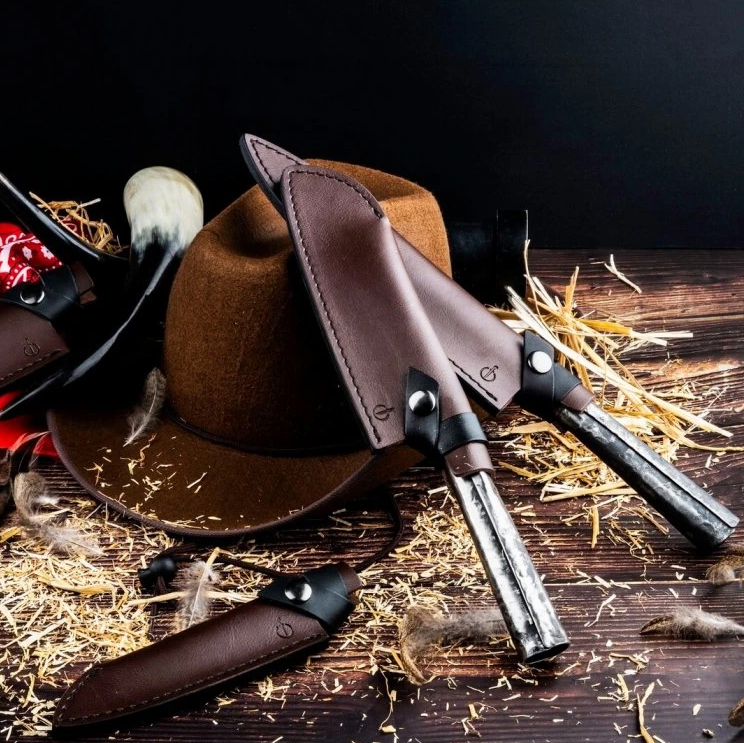How? By proper storage and care. This is what the experienced chefs from our cooking school agree on Chefparade and also the knife manufacturers themselves. They stress that the most important thing is to protect the blade from mechanical damage. We'll give you some advice on how to do this and also add some practical recommendations on what to avoid to keep your knives in their original condition for a long time.
%20kopie.jpg)
How to store kitchen knives properly so they don't get dull and damaged?
Never store knives loosely in the drawer among other kitchen utensils or other knives. This is because bumping knives into other tools can lead to dulling and damage to the blade. The only safe storage of knives is:
Magnetic knife rails
One of the best ways to store knives is with magnetic rails. The knives are always close at hand, they don't get in the way and the magnetic rails don't take up space on the work surface. However, it is important to make sure that the bar is strong enough and that the knives do not slip.
Knife blocks
Wooden or bamboo block is a proven classic. Make sure you store your knives clean and dry so that bacteria doesn't breed in the narrow crevices, and also so that your knives don't start to rust.
Drawer organisers
If you prefer a minimalist kitchen look or like everything neat and tidy, drawer organisers are a great option for you. These ensure that each knife has a fixed place and is not at risk of damage.
Knife sheaths
If you have no choice but to store your knives together in a drawer with your other tools, get a blade sheath for each knife. This too will perfectly protect the blade from damage.
Quality knife blocks, knife stands and magnetic knife rails
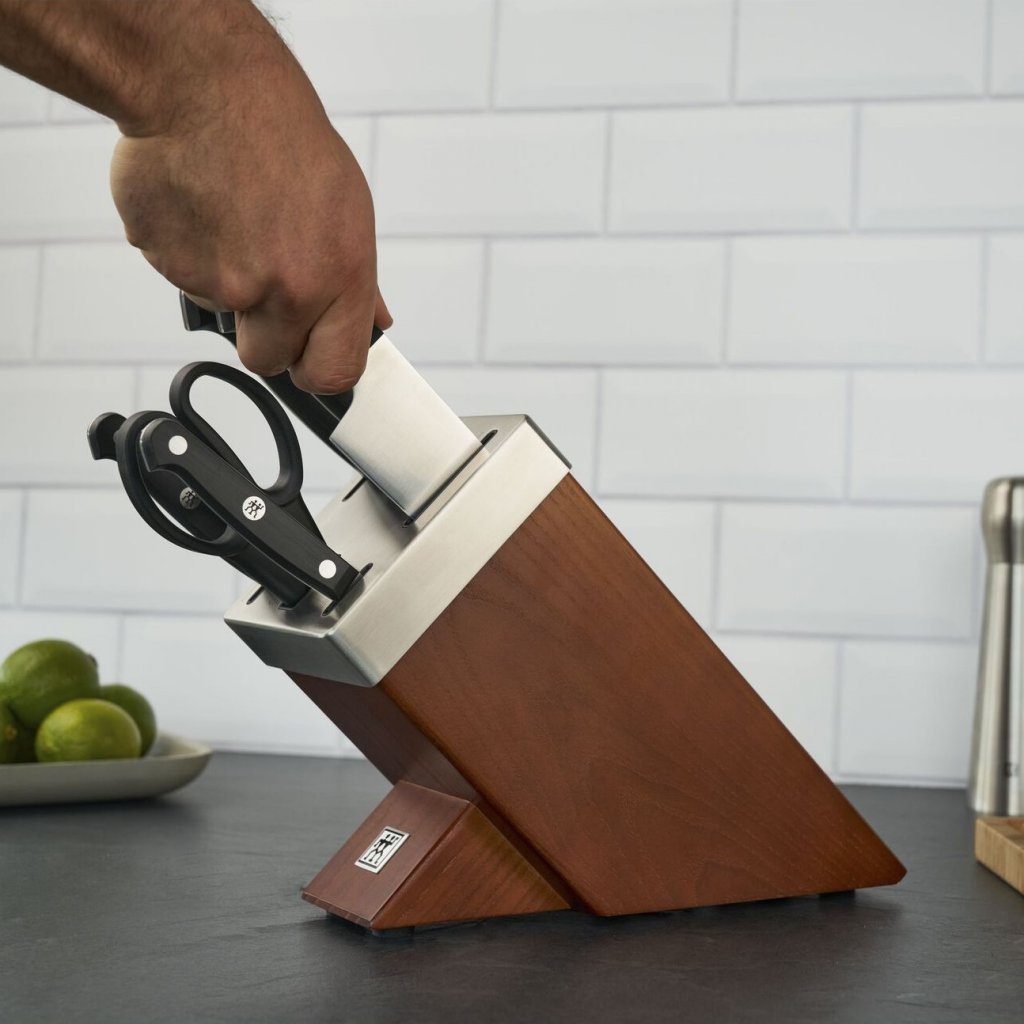
- Washing in the dishwasher
The strong solvents contained in the tablets, high temperatures and contact with other utensils clearly lead to damage to the blade and handle, especially if they are wooden. Simply put, the dishwasher dulls the knives!
However, there are some knives that can be washed in the dishwasher under certain circumstances, read on, which are. - Contact with hard surfaces
Cutting on hard surfaces such as metal or stone can irreparably damage the blade. Therefore, always use wooden or plastic cutting boards. - Humidity
Never leave the knives wet. Moisture promotes rusting and can also cause deformation of the handle. So make sure the knives are perfectly dry before cleaning them.

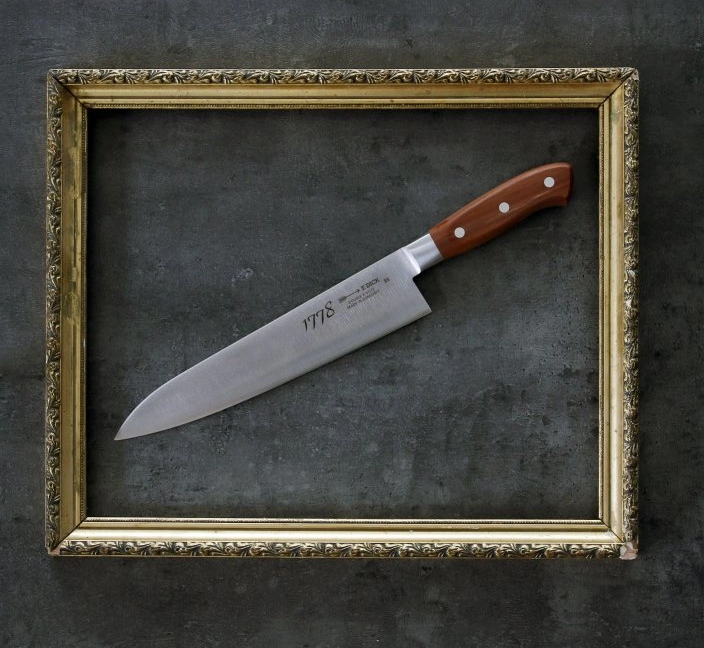
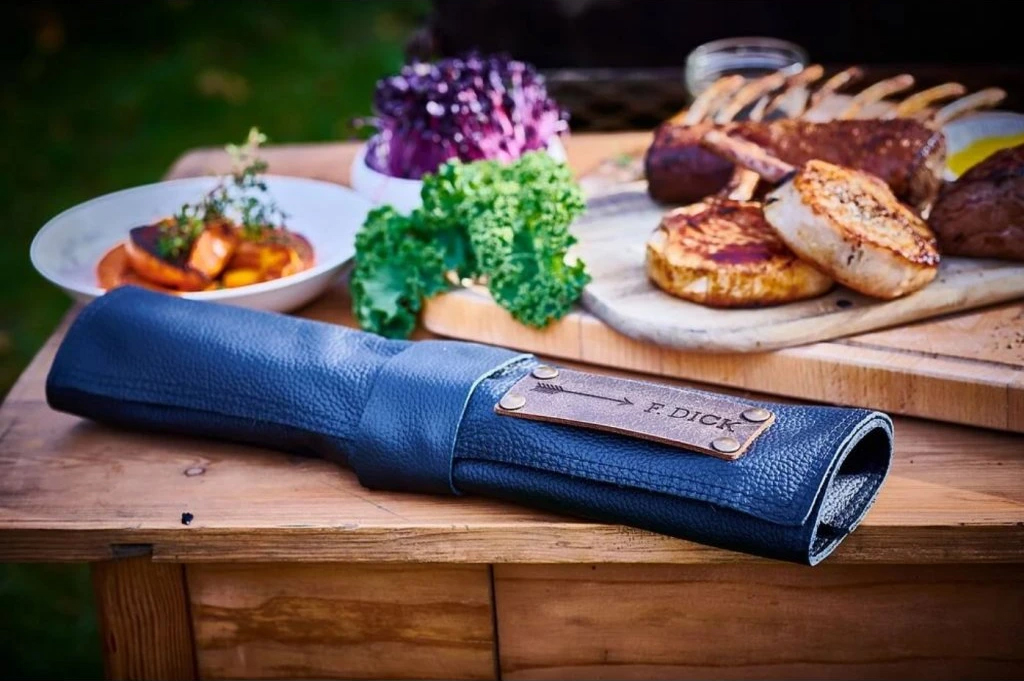
If you often travel with your knives, quality suitcase, bag, backpack or at least a protective case will be a must for you. These cases provide safe and practical storage, protect the blade from damage and ensure easy transport. In addition, they help to keep things tidy and allow you to keep all your knives close at hand.
Reliable knife bags and sheaths
%20kopie.jpg)
Proper storage knives is the key to their longevity and safe use. If you store your knives so that their blades are protected from mechanical damage, they will not only keep their sharpness for longer, but also reduce the risk of accidents (as dull knives require more pressure when cutting). So all it takes is proper care and your knives will serve you reliably for decades.
.png)

